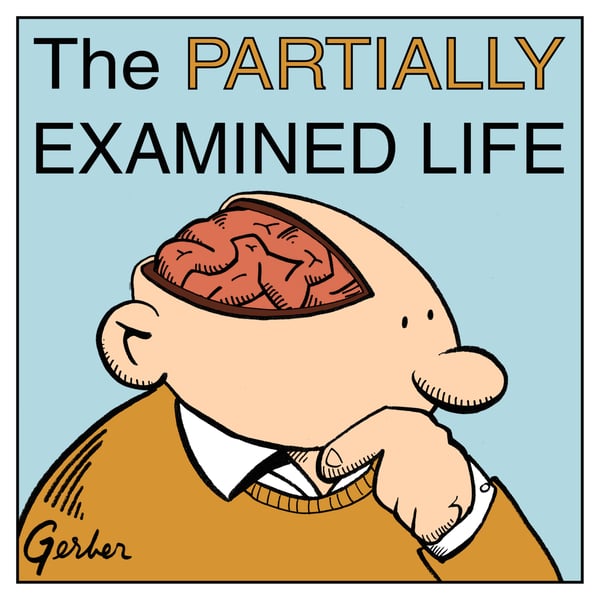Ep. 348: Tim Williamson's Knowledge-First Epistemology (Part Two)
The Partially Examined Life Philosophy Podcast
Mark Linsenmayer
4.6 • 2.3K Ratings
🗓️ 26 August 2024
⏱️ 52 minutes
🧾️ Download transcript
Summary
Continuing on "Knowledge First Epistemology" (2011), "Justifications, Excuses, and Sceptical Scenarios" (2015), and "Morally Loaded Cases in Philosophy" (2019).
How does knowledge-first epistemology relate to reliabilism? What are its moral implications? Does W. have a good argument against relativism and skepticism?
Get more at partiallyexaminedlife.com. Visit partiallyexaminedlife.com/support to get ad-free episodes and bonus content.
Transcript
Click on a timestamp to play from that location
| 0:15.8 | You're listening to the partial exam in life episode 348 part 2. We've been talking about the ideas of Tim Williamson on knowledge first epistemology we're in the middle of considering in detail a chapter in the Rutledge |
| 0:21.7 | companion to epistemology 2010 by Williamson just in the |
| 0:25.0 | idea of knowledge of epistemology, referring back to his ideas from his knowledge |
| 0:29.6 | and its limits book from 2000. |
| 0:32.0 | And I think we had gotten through the idea were there any other |
| 0:36.5 | comments on the position that he's arguing against sees the mental as somehow transparent or he uses the term luminous, that mental states are things that if you're having them, you know you're having them, right? If I'm in pain, I know I'm in pain. |
| 0:51.0 | Many philosophers have, right? |
| 0:52.8 | Sartre even argued that Freud's unconscious didn't even make sense because for exactly |
| 0:57.8 | this reason that he thought what the mental is all about is that it is transparent and Williamson is arguing that even something like |
| 1:05.4 | pain is not transparent so definitely you wouldn't think something like belief or evidence |
| 1:10.3 | or anything else that goes into epistemology wants to say that knowledge really is a mental state. |
| 1:15.6 | It is not partly mental because it's transparent and then partly not. |
| 1:19.9 | In fact, the whole thing, every component of it, every, if you want to say they're components at all is not transparent. |
| 1:25.9 | So if you want to say you should always moderate your beliefs in time with the evidence, well, you don't actually know exactly what you believe and you don't |
| 1:34.8 | exactly know what the evidence is even though you think you might but you know there your |
| 1:38.9 | belief is going to have maybe words in it and those words have references and things that are outside. have |
| 1:43.1 | maybe words in it and those words have references and things that are outside your immediate |
| 1:46.2 | consciousness. The evidence is going to be like knowledge itself. |
| 1:51.4 | What you think might be evidence might not really be evidence, right? |
| 1:54.4 | So there's no such thing as a pure seeming, you know, at least that has any knowledge content. |
| 2:00.4 | Yeah. Yeah, right. What seems to be evidence may not be |
| 2:03.2 | evidence. So, but he wants to identify evidence with knowledge, with what you |
... |
Please login to see the full transcript.
Disclaimer: The podcast and artwork embedded on this page are from Mark Linsenmayer, and are the property of its owner and not affiliated with or endorsed by Tapesearch.
Generated transcripts are the property of Mark Linsenmayer and are distributed freely under the Fair Use doctrine. Transcripts generated by Tapesearch are not guaranteed to be accurate.
Copyright © Tapesearch 2025.

